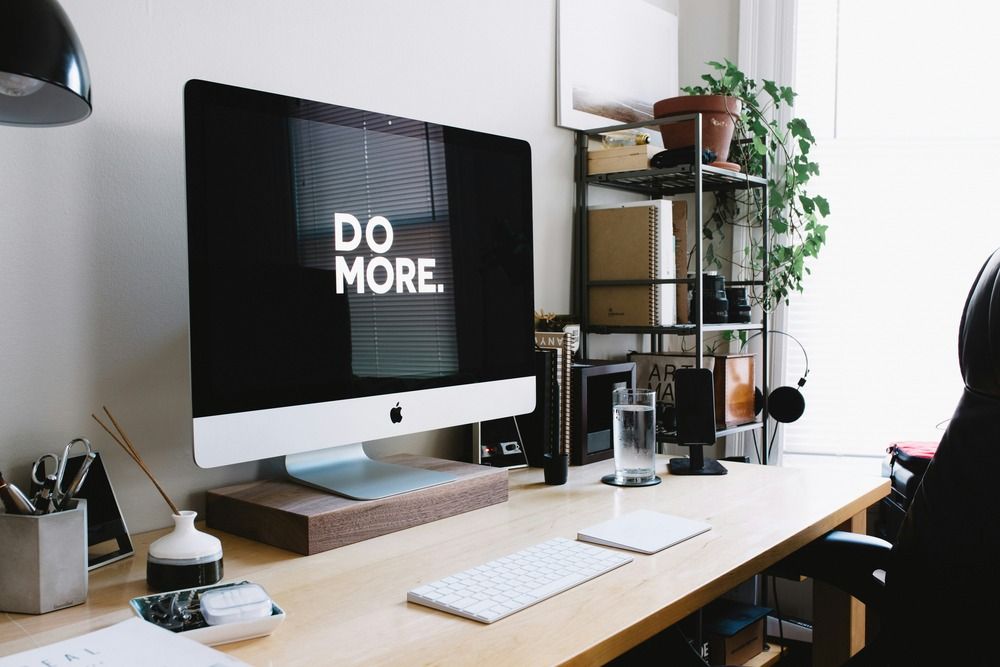How to Stay Organized as a Consultant

Key Points
A messy work environment can have a big impact on your productivity and time management.
Declutter your physical space and set a schedule for your day to improve your focus.
File electronic and physical documents to stay on top of back-office tasks.
Boosting your productivity as a small business owner is never a bad thing. Two of the most valued benefits to being an independent contractor are the flexibility to work where want and the ability to work how you want. Whether you work out of a home office, leased space, or coworking facility, you’ve likely spent time tailoring this space to best fit your needs. If not, you’ll quickly learn that a disorganized work environment can have a big impact on your productivity and time management.
There’s a lot to keep track of when you run your own business, from business cards and client files to marketing and research. You don’t want to spend more time looking for documents, emails, and supplies than you do working on your latest project. Follow these organizational strategies for a clean, organized workspace you can feel good about coming to each day.
1. Organize Your Physical Space
Start your organizational quest by decluttering your physical work environment. Clear paperwork off your desk, and file, shred, or recycle old documents. Take inventory of anything that doesn’t add value to your productivity. Is there unnecessary furniture, boxes, or knickknacks in your space?
Once you’ve gotten rid of the clutter, it’ll be easier to organize what you have left. Rearrange furniture to make things like your filing cabinet, trash can, or recycling bin more easily assessable. Only leave things on your desk that you need to access daily: your computer, your phone, a few pens, and a small notepad. Coming into a clean, orderly workspace will help you to immediately focus and be productive during your next work session.
8 Ways to Improve Focus and Concentration at Work
2. File Your Documents
To stay organized as an independent professional, developing a filing system is key. It doesn’t matter how your system works just so long as it works for you, and you can easily maintain it. Consider sorting your files alphabetically, by project, or by client. Labeled shelves, folders, or bins can help you put your filing system into place. Once you have a system in place, apply it to both your physical and electronic files. That way, you’ll know how to find what you need whether you’re in your office on the go.
Organize additional office supplies by storing related items together. Simple adjustments such as keeping ink by the printer, stamps next to envelopes, and pens with notepads will save you time and frustration down the road.
3. Tackle Your Inbox
After you’ve arranged your physical workspace, it’s time to tackle the virtual. There are countless ways to sort an email inbox, so test out a few systems to find the method that works best for you. Keep this goal in mind: you want to be able to quickly file incoming email, and easily find communications again in the future. Creating different folders for each client, and subfolders for individual projects is one way to systematize your inbox.
If you have a backlog of emails, try strategically sorting to clear them out. Sort by date to file messages that have been hanging out for a few months, sort by sender to quickly file emails into client folders, and sort by subject line to find related emails that you can file together.
Lastly, review your laptop or computer for old software, folders, documents, or pictures that you no longer need. Make sure you back up the remaining, organized files to an external hard drive or to the cloud.
9 Ways to Increase Productivity When You’re Self Employed
4. Create White Space
Don’t feel like you must fill up every inch of your desk with office supplies. Having a section of clear space will help to create a more easily manageable work environment and help you stay more organized. Use white space as an area to turn away from your computer and take notes, review documents, or sign papers. White space can also include hanging a few dry erase boards on your walls that you can use to visually organize projects, write a to-do list, or brainstorm ideas.
Spending a few hours organizing your space and filing a build-up of documents is an incredibly valuable time investment. The effort you put in will make it easy to find information when you need it, which will lead to higher levels of productivity, minimized distractions, and a work environment that both looks and feels good.
5. Schedule Your Day
Starting work without a plan in place can be a recipe for disaster. Sure, you might feel productive by dedicating all your time to a single project or idea, but getting too caught up in one activity or procrastinating because you don’t know where to start can be a waste of time.
Instead, have a schedule ready for you when you get to work. That doesn’t mean you have to schedule every minute of the day—your schedule can be a rough outline of tasks that is flexible. The goal with creating a plan is that you think ahead to the key activities or tasks you need to accomplish so you can prioritize them accordingly. Avoid scheduling your day so that you have one difficult assignment after another. Change it up by alternating challenging duties with easier ones.
How to Take Control of Your Personal Time as a Consultant
Related Posts
Trending
Subscribe to our
blog
Get a weekly email of our latest posts sent straight to your inbox
Learn more about the MBO Platform
FOR INDEPENDENT
PROFESSIONALS
Start, run, and grow
your independent business with MBO
FOR
ENTERPRISES
Engage, scale, and optimize
your independent workforce



